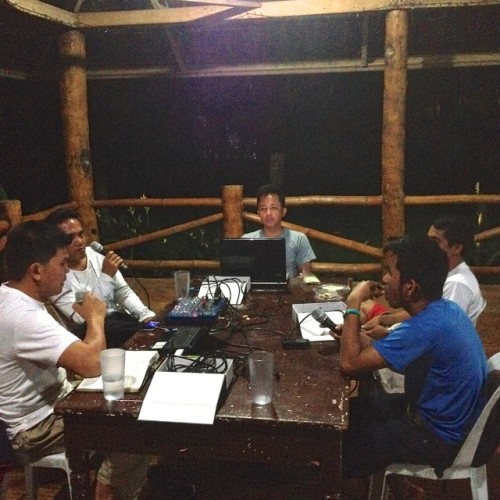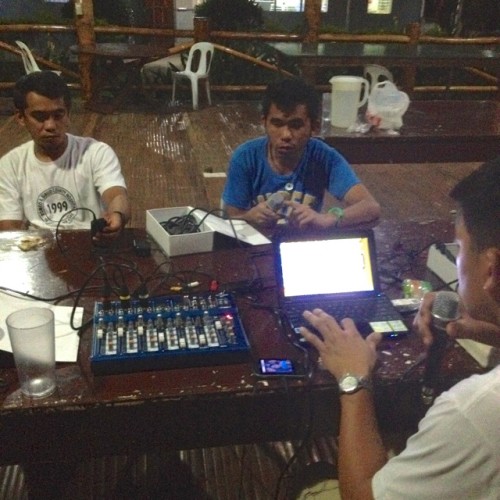 Reading through the devotional book, Daily Light, I came across Anne Graham Lotz's introduction notes. She spoke of the need to pass the baton from one generation to another. The baton representing our responsibility to share the gospel and equip others to do the same.
Reading through the devotional book, Daily Light, I came across Anne Graham Lotz's introduction notes. She spoke of the need to pass the baton from one generation to another. The baton representing our responsibility to share the gospel and equip others to do the same.
How does this baton get passed without being dropped? The most effective way I know of passing the baton of faith to another generation is given by Jesus—simple, relational discipleship. (Tweet or Share this)
But passing the baton to another generation means we must let go and entrust it to another. It means stepping back so others can step forward. (Tweet or Share this
The need to let go
Discipleship has various phases. In the beginning it requires a strong commitment of leadership. (Tweet or Share this) As it progresses, the mentor needs to allow the one mentored to grow and develop. (Tweet or Share this)
In the language of today, we want to empower disciples. The goal is to enable them to carry on with equipping others, or discipling others to be disciplers. (Tweet or Share this) But good leadership requires letting go, loosening our grip and control, and relinquishing it to another generation. (Tweet or Share this)
This can be challenging and difficult for typical Type A leaders. But if leaders don't let go, the baton will not get passed on.
If a leader holds on too long, the baton will get dropped in the process of transition. (Tweet or Share this) Why? Because they wait too long to let go. I've seen this happen in churches and ministries in the US, and especially overseas with ex-pat missionaries and national leadership. Failure to pass the baton well is costly.
Simple tech
This past Sunday evening I had the pleasure of watching my dear pastor friend EB, whom I shared about last week, make a remote radio broadcast.
He and his team of leaders set up their remote broadcast on the bamboo floor of our open-wall, thatched-roof multipurpose building. I was impressed by their use of simple, yet effective technology.**
They use several cell phones, a couple of laptop computers, and a small portable sound mixer. One cell phone provides internet access, another to accept callers, which is patched into the laptop used to broadcast. The other cells are to accept text messages from listeners.
A sim chip from one cell is inserted to a USB wi-fi antenna in the broadcast laptop. This provides a means of sending the remote broadcast to the radio station.
An inclusive approach
Each of the team has a microphone so they can contribute and interact with listeners.
The broadcast is centered around the telling of a biblical story, or the reading of Bible text. Time is given to examine the context of the story or text, and questions are asked to stimulate thought and discussion.
EB uses an oral inductive approach to studying the story or text in this public Bible study. It's interactive and dynamic, and its simplicity engages those who listen in. The radio broadcast has many who look forward to the study and discussion each week.
Allowance is made to accommodate people of varying levels of understanding, and for people to give greetings. It's a true Filipino approach. It's inclusive, relational, and group oriented.
Would it work in the US?
My wife asked me if I thought the same approach to public Bible study and discussion over radio would work in America. Honestly, I'm not sure it would, but it would be worth trying.
Most Bible teaching on radio and television is very linear and uni-directional. Many interview and call-in shows exist, but they tend to become shouting matches or long-winded diatribes, where dominant personalities and opinions reign. In other words, they are anything but inclusive. (Tweet or Share this)
This brings me back to passing the baton to another generation. EB and two others on the team were students of mine before, and the other two are students for EB's training. My role as a primary leader in their lives is complete. They still respect me and look to me for counsel and insight, but they know they have the baton. I let go of it a long time ago.
Trust and humility
Passing the baton onto a new generation requires both trust and humility. (Tweet or Share this) Ultimately, this means that primary leaders must be willing to humble themselves and trust others. As I said, not an easy things for most Type A personalities.
Sadly, western leaders don't have a great track record when it comes to handing off the baton of leadership. (Tweet or Share this) This is true in business, politics, and ministry. And yet, it's the very model Jesus gave us, and what we see throughout the New Testament writings.
So, if you are a leader of some kind and in some way (including parents), are you willing to let go? Are you willing to humble yourself before God and others, including those you mentor? It's what is needed to pass the baton on to another generation, even a younger generation.
Oh, one more thing, EB tells me they hope to get a low-frequency radio transmitter so they don't have to pay for air time. He's already taken and passed his broadcaster's license exam. He's got vision!
___________________________________
** I hope to add a link to a short video of EB sharing about their radio broadcast... when I have a better internet connection ;-) You can look for it on my Word-Strong Facebook page



